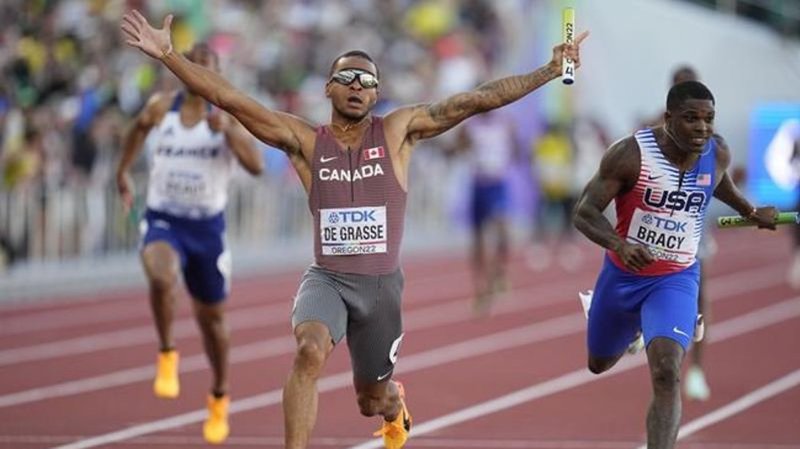
Gilbert: Canada took a chance and lengthened baton exchanges en route to relay gold
Glenroy Gilbert didn’t watch Canada’s men’s 4×100-metre relay team race live on Saturday night at Hayward Field.
Instead, Canada’s head coach — an Olympic champion in the relay himself — went for a walk.
The emotions were simply overwhelming.
“I didn’t want to, I didn’t want to, it was too stressful,” Gilbert said. “I had so much hope for them, that it was beyond anything I could control. So I thought: I’ll go for a walk. And all I was thinking was, if these guys do what they’re capable of doing, they can win. It wasn’t even about winning a medal, we know they can win a medal. But they could win.
